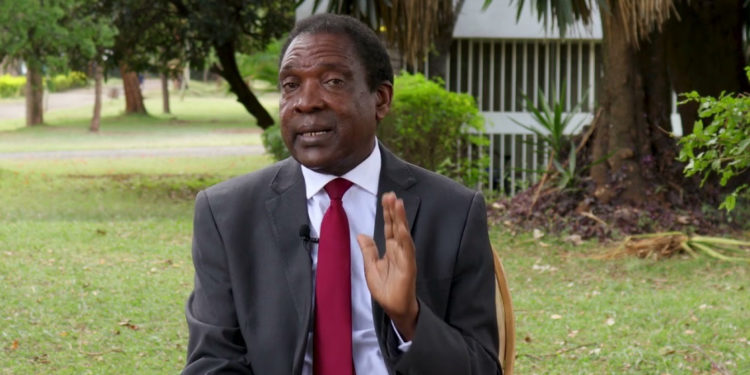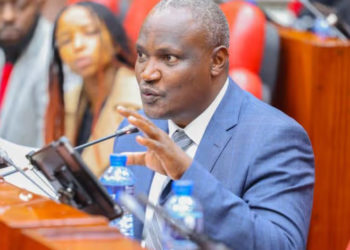Political analyst Herman Manyora has asserted that there is “no one competent” in the newly appointed cabinet, describing the reshuffle as a “political maneuver” rather than a genuine attempt to improve governance.
Speaking on Spice FM, Manyora expressed deep skepticism about the capabilities of the new ministers, arguing that the reshuffle has done little to regain public trust or address the country’s governance challenges.
“The public confidence in the president is at its lowest,” Manyora said. “People don’t believe the president; people don’t trust him. That’s as bad as it can get for any government.” His comments reflect growing public frustration, which has been further inflamed by recent youth protests and demonstrations against the government.
President Ruto recently disbanded his cabinet following the Gen Z protests, retaining only Prime Cabinet Secretary Musalia Mudavadi. This was followed by the appointment of new ministers, a move intended to signal change and accountability. However, Manyora contends that the reshuffle was more about optics than substance. “Dissolving a cabinet is a way of buying back the public you have lost,” he said. “But when you come back with the same sort of people, there is no cabinet to talk about.”
Manyora’s criticism of the cabinet was not limited to the reappointment of former ministers. He also questioned the competence of new appointees, suggesting that even those with the potential to perform would struggle under the current political climate. “Public confidence is very important in public affairs. If the public doesn’t have confidence in you, how sure are we that the president will give these people room to perform?” he asked, highlighting the challenges faced by any government struggling to rebuild its credibility.
The cabinet reshuffle has been met with mixed reactions from the public and political commentators. Manyora sees it as a superficial measure aimed at managing public perception. “The circumstances under which the cabinet was dissolved would rule out completely returning even one of them to cabinet, irrespective of how good they were,” Manyora said. “Yet, I am not seeing anybody competent in that cabinet.”
Manyora’s assessment comes at a time of mounting political and social unrest in Kenya, marked by public protests and dissatisfaction with the government. The youth-led Gen Z protests, which demanded greater accountability and transparency from the government, led to a cabinet dissolution and subsequent reshuffle. However, Manyora believes these actions have not gone far enough to address the underlying issues. “The dissolution of the cabinet was supposed to signal a serious commitment to change. But the reappointment of familiar faces contradicts that message,” he noted.
Manyora also touched on broader governance challenges, including the role of external actors such as the United States in Kenyan politics. He suggested that foreign influence may be affecting the government’s decision-making, citing recent visits by U.S. officials and their statements on human rights and governance. “The Americans know how to play their game,” he remarked, speculating that U.S. actions could be seen as distancing themselves from the current administration while still maintaining strategic ties.
In addition to critiquing the government, Manyora called for systemic reforms to address corruption and promote transparency. He advocated for a move towards a welfare state that would provide essential services like education and healthcare, arguing that this could reduce corruption by lowering the need for illicit funds. “It is not difficult to provide free education and healthcare if you stop corruption,” he argued.


















